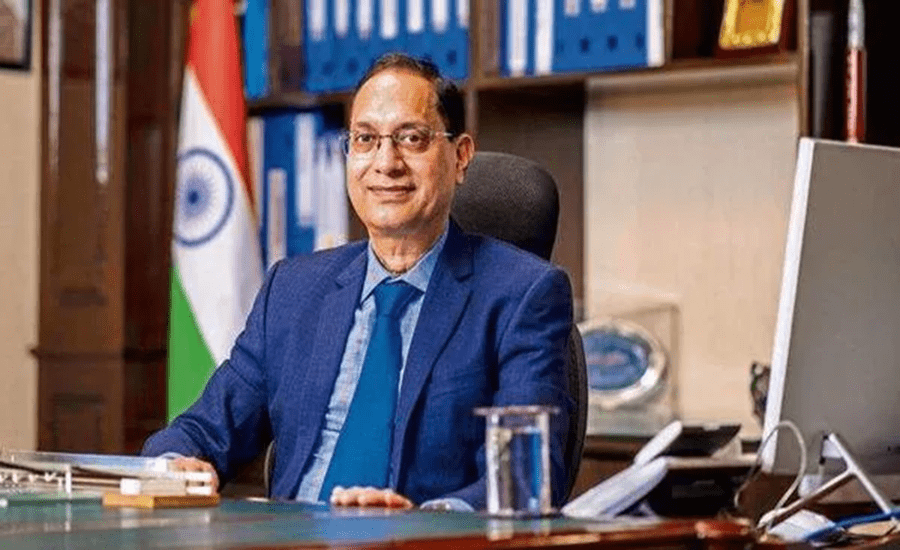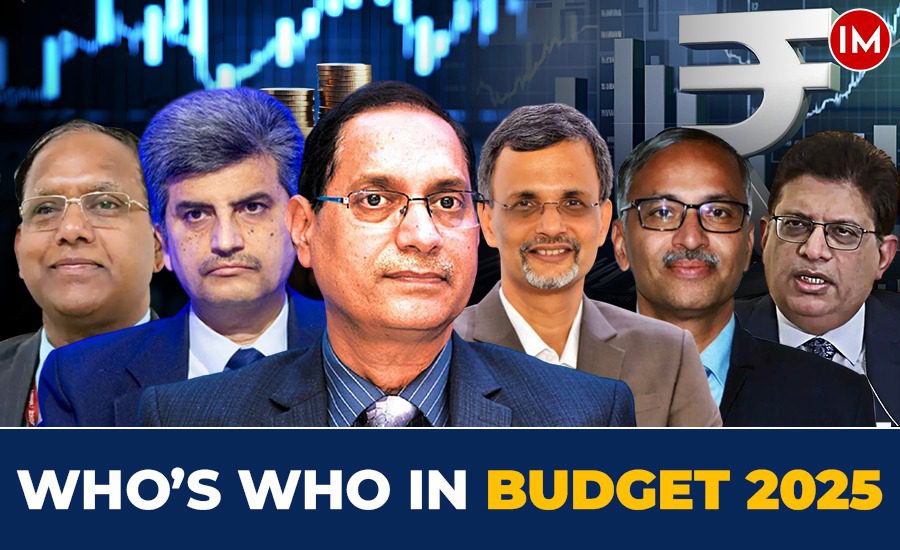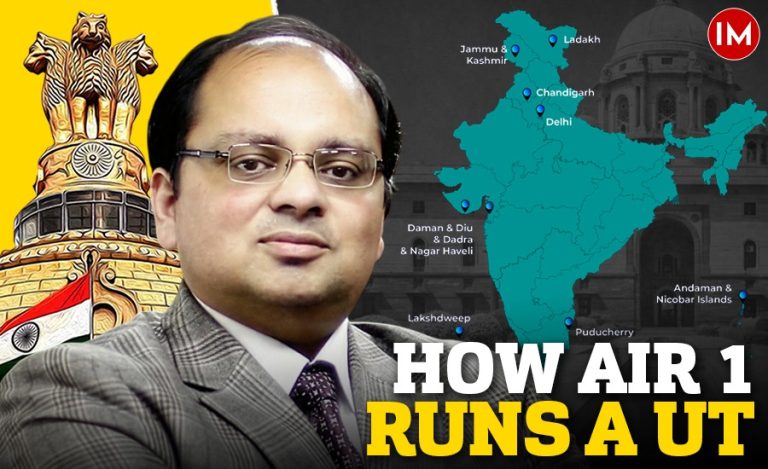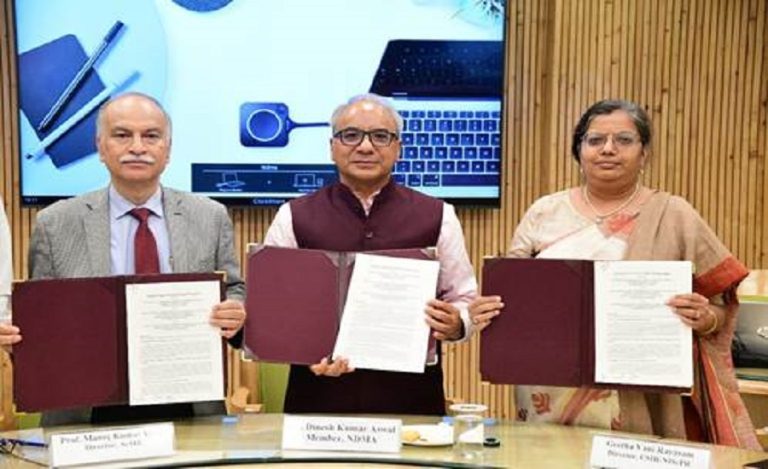Every Union Budget is more than just numbers and policies—it is a reflection of the nation’s economic priorities and aspirations. As Finance Minister Nirmala Sitharaman presents the Union Budget 2025 today, she carries the responsibility of shaping India’s financial roadmap amid global uncertainties and domestic economic shifts. This budget is particularly crucial as it marks the first of the Modi government’s third consecutive term and comes at a time when India must balance economic expansion with fiscal prudence. With a projected growth rate of 6.4% and rising concerns over inflation, the government must ensure steady progress while addressing key challenges.
However, behind every well-structured budget is a dedicated team of bureaucrats who meticulously research, strategize, and execute economic policies. These officials, led by the Finance Minister, engage in extensive consultations with industry leaders and policymakers to ensure that the budget addresses current economic realities.
Here, at Indian Masterminds let’s take a closer look at the key figures who have played a pivotal role in shaping Budget 2025.
V Anantha Nageswaran –THE CHIEF ECONOMIC STRATEGIST
As the Chief Economic Adviser (CEA), V Anantha Nageswaran plays a crucial role in establishing the macroeconomic framework for the budget. An alumnus of IIM Ahmedabad with a doctorate from the University of Massachusetts, he has a strong background in academia and financial markets.
His primary responsibility includes preparing the Economic Survey, which serves as a comprehensive report card of India’s economy and sets the policy direction for the budget. Released on January 31, the survey outlines key economic trends, challenges, and reforms needed to sustain growth. This year, his focus has been on promoting private investment, fostering entrepreneurship, and ensuring economic resilience amid global uncertainties. His tenure as CEA concludes this financial year, making this budget an important milestone in his career.
Manoj Govil – THE WATCHDOG OF GOVERNMENT EXPENDITURE
As the Expenditure Secretary, Manoj Govil oversees the allocation of funds across various government schemes and ensures efficient utilization of resources. A 1991-batch IAS officer from the Madhya Pradesh cadre, he joined the Finance Ministry in August 2024 after serving in the Ministry of Corporate Affairs.
An alumnus of IIT Kanpur with a Master’s degree in Public Policy and a PhD in Economics from Princeton University, Govil is responsible for rationalizing subsidies, optimizing welfare spending, and maintaining fiscal discipline. His department plays a pivotal role in funding centrally sponsored schemes while ensuring that expenditures align with revenue targets.
Ajay Seth – THE BACKBONE OF ECONOMIC AFFAIRS
Ajay Seth, a veteran bureaucrat, has been leading the Department of Economic Affairs (DEA) since April 2021. His primary role includes preparing the final Budget documents and ensuring macroeconomic stability. He is also credited with establishing the Infrastructure Finance Secretariat, which plays a critical role in financing large-scale projects.
As the head of the Budget Division, Seth is responsible for maintaining fiscal consolidation and guiding economic policies amid evolving global financial conditions. His expertise will be instrumental in achieving the government’s long-term debt targets and sustaining economic growth.
Tuhin Kanta Pandey – THE TAXATION AND REVENUE STRATEGIST
Tuhin Kanta Pandey, an Odisha cadre IAS officer, took charge as Finance and Revenue Secretary in January 2025, just weeks before the budget. His expertise in public asset management and government finances makes him a key figure in shaping tax policies and revenue generation strategies.

Previously, he served as Secretary of the Department of Investment and Public Asset Management (DIPAM), where he led the government’s disinvestment initiatives. In his new role, Pandey is responsible for simplifying the taxation system and ensuring robust revenue collection. He is also spearheading the revision of income tax laws, a significant reform that may be introduced in the upcoming parliamentary session.
Also Read : The Architect of India’s Financial Future
Arunish Chawla – THE ARCHITECT OF DISINVESTMENT PLANS
A 1992-batch Bihar cadre IAS officer, Arunish Chawla leads DIPAM and the Department of Public Enterprises (DPE). His primary focus is on asset monetization and disinvestment, which are crucial for raising government funds.
Chawla is tasked with overseeing the strategic sale of IDBI Bank and other state-owned enterprises. His experience in the pharmaceutical sector and government administration gives him a unique perspective on managing public assets effectively. By unlocking the value of non-core government assets, he aims to generate funds for public spending and reduce fiscal deficits.
M Nagaraju – THE GUARDIAN OF FINANCIAL SERVICES
M Nagaraju, a 1993-batch IAS officer from the Tripura cadre, serves as the Financial Services Secretary, overseeing India’s banking, fintech, and insurance sectors. His role is critical in ensuring the smooth flow of credit, regulating fintech companies, and expanding insurance coverage.
Before taking on this role, Nagaraju worked in the Ministry of Coal, where he played a key role in opening the sector to private players. In the Finance Ministry, he is responsible for strengthening India’s financial services landscape. His focus areas in this budget include increasing credit flow, enhancing deposit mobilization, regulating fintech platforms, and expanding financial inclusion programs.
While Finance Minister Nirmala Sitharaman will be the face of the Union Budget 2025, these top bureaucrats have played a vital role in shaping its core policies. Their expertise and strategic planning ensure that India’s economic priorities are balanced, and fiscal stability is maintained.
As the government aims for steady growth amid global uncertainties, Budget 2025 is expected to address key challenges like inflation control, infrastructure development, tax reforms, and financial inclusion. With these experts at the helm, India’s economic roadmap is in capable hands.
































